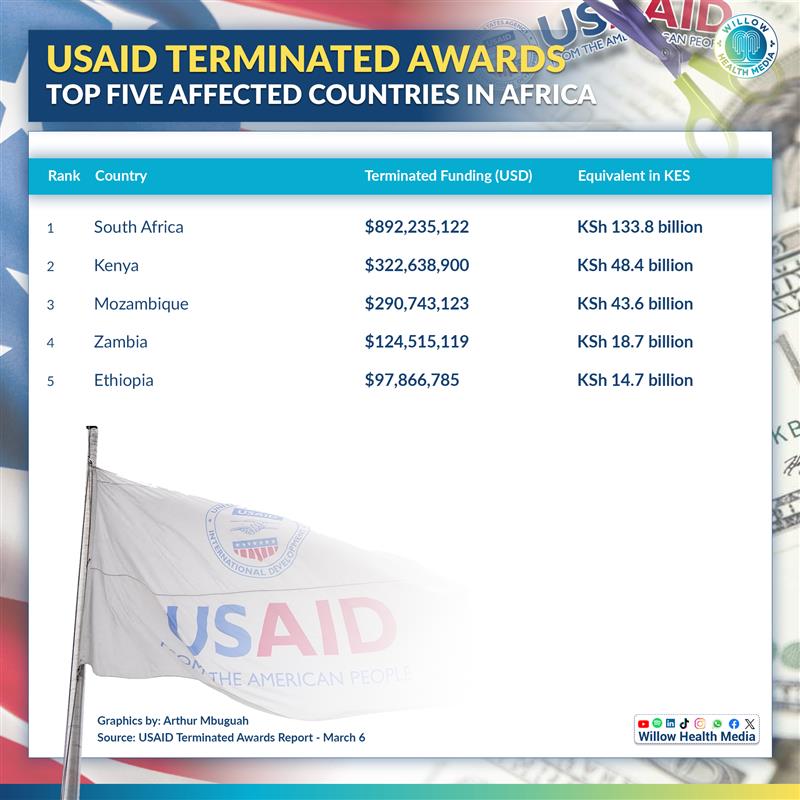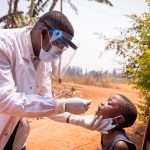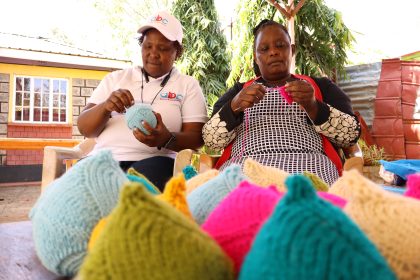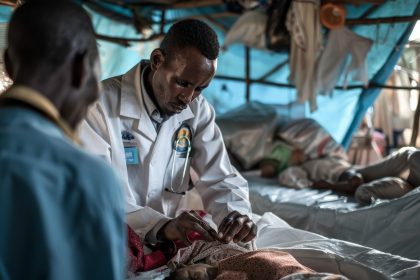The worst hit are health initiatives supporting HIV treatment, maternal and child health, and pharmaceutical supply chains
The sudden cut in USAID funding has hit Africa hard, disrupting vital healthcare, education, and economic programs. With billions in aid pulled back, many vulnerable communities now face an uncertain future. The World Health Organization (WHO) warns this could lead to disease outbreaks and growing hunger.
Kenya has been significantly affected by the cuts, with healthcare, water and sanitation, governance and education programmes losing critical funding, according to a document titled, ‘USAID-Terminated-Awards’ released on March 6.
The termination has resulted in the cancellation of about 80 projects comprising 57 major development initiatives and 23 administrative ones according to the document which total funding loss to $324 million- with the major projects accounting for $322 million.
The administrative terminations amount to $1.5 million including the cost of office operations, software subscriptions and renewals, professional audits, procurement of supplies and legal services for the USAID Kenya Resident Legal Office.
While seemingly minor, these administrative expenses are crucial to programme efficiency, and their removal exacerbates disruptions across all affected sectors. The worst hit are health programmes related to USAID-funded initiatives supporting HIV treatment, maternal and child health, and pharmaceutical supply chains.

The Kenya Health Partnerships for Quality Services (KHPQS), for instance, has suffered immense losses across multiple clusters: Cluster 1 ($47 million), Cluster 5 ($22.5 million) and Cluster 6 ($27.6 million) significantly disrupting HIV and maternal healthcare services.
Also terminated are projects targeting vulnerable groups like the USAID Tujitegemee OVC and DREAMS Activity in Mombasa and Kilifi Counties ($23 million) and the USAID Tujenge Jamii Activity – KHPQS Cluster 4 ($40.6 million) 89,959), leaving thousands of orphans and at-risk youth without critical support.
Additionally, the Kenya Integrated Pharmaceutical and Supply Chain Technical Assistance (KIPS) Award lost $24.5 million, and the USAID Supply Chain Strengthening program suffered a massive $218 million cut, jeopardizing the availability of essential medicines.
The Western Kenya Sanitation Project ($17.8 million) and the Cross-Border Community Resilience Activity ($15.4 million), further exacerbate the crisis, threatening access to clean water and sanitation, increasing the risk of disease outbreaks, and deepening the healthcare emergency in affected communities.
The USAID funding cuts also caused serious challenges across East Africa, affecting the economy, humanitarian aid, and regional stability. The Trade and Investment Reforms in East Africa program lost $28 million, slowing key trade and investment projects.
The Market-Based Resilience for Marginalized Populations (MB-RMP) programme faced a $28.6 million cut, limiting support for vulnerable communities coping with economic and environmental hardships while the Cross-Border Community Resilience Activity lost $15.3 million, weakening efforts to boost regional security and manage humanitarian crises.
The Global Fund warns that without new funding sources, these cuts could worsen poverty, force more people from their homes, and slow progress in fighting malaria, tuberculosis, and HIV.
The sudden withdrawal also triggered economic instability and strained vital services across Africa. In Trade and Investment, the Prosper Africa Trade and Investment Activity lost $361 million, halting key economic partnerships and slowing Africa’s entry into global trade networks.
In Food Security, the ELEVATE Nutrition Project faced a $29 million cut, putting millions at risk of malnutrition. As for Water Access, the Africa Water Facility (AWF) lost $3 million, reducing clean water availability in underserved areas while in Digital Innovation, the Digital Transformation with Africa (DTA) Initiative was cut by $700,000, delaying tech-driven progress.
These losses threaten years of progress in economic growth, food security, and governance, leaving nations scrambling for new support.
The WHO warns that these cuts could seriously impact efforts to fight malaria, HIV and tuberculosis. While countries like Kenya and Malawi are seeking emergency funding, challenges persist.
Rwandan President Paul Kagame sees this as an opportunity for Africa to build self-reliance, urging governments to develop sustainable economies. Indeed, as the US scales back, China is expanding its investments in African healthcare, especially in Rwanda, to help fill the gap.
The economic impact is severe — in 23 African economies, aid cuts could reduce Gross National Income (GNI) by over one per cent with eight nations facing losses of three per cent or more and global health leaders urging the US to reconsider.
Like WHO Director-General Dr Tedros Adhanom Ghebreyesus who warned that “These cuts could undo decades of progress and put millions at risk.”
The future remains uncertain, but with mounting pressure and new players like China stepping in, Africa faces a pivotal moment in shaping its path forward.





















